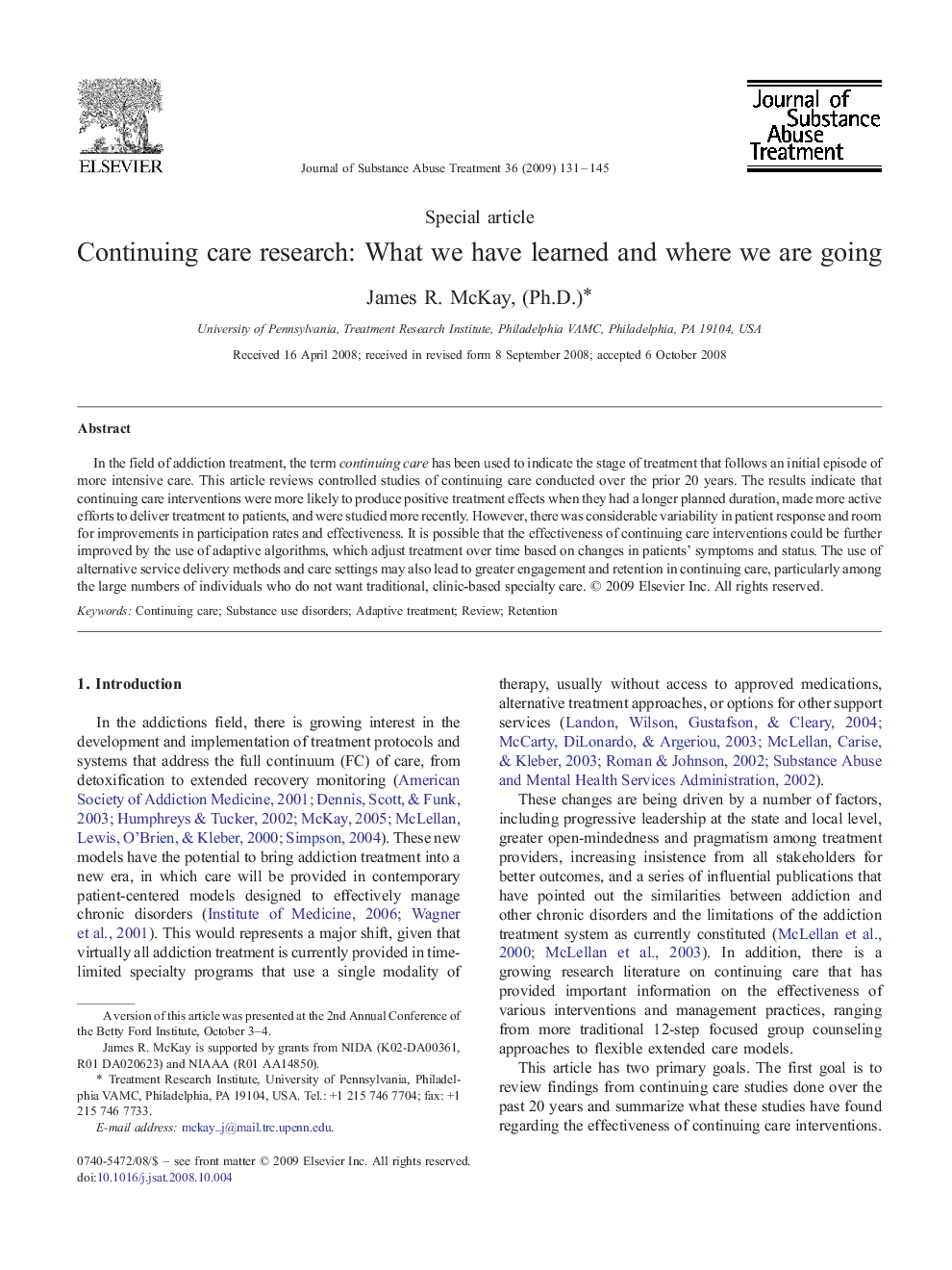| Article ID | Journal | Published Year | Pages | File Type |
|---|---|---|---|---|
| 328291 | Journal of Substance Abuse Treatment | 2009 | 15 Pages |
In the field of addiction treatment, the term continuing care has been used to indicate the stage of treatment that follows an initial episode of more intensive care. This article reviews controlled studies of continuing care conducted over the prior 20 years. The results indicate that continuing care interventions were more likely to produce positive treatment effects when they had a longer planned duration, made more active efforts to deliver treatment to patients, and were studied more recently. However, there was considerable variability in patient response and room for improvements in participation rates and effectiveness. It is possible that the effectiveness of continuing care interventions could be further improved by the use of adaptive algorithms, which adjust treatment over time based on changes in patients' symptoms and status. The use of alternative service delivery methods and care settings may also lead to greater engagement and retention in continuing care, particularly among the large numbers of individuals who do not want traditional, clinic-based specialty care.
